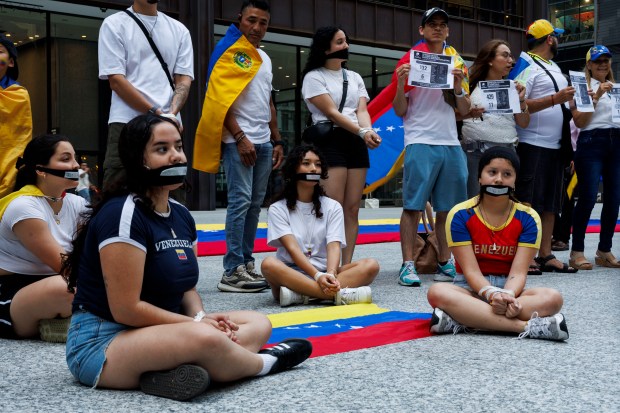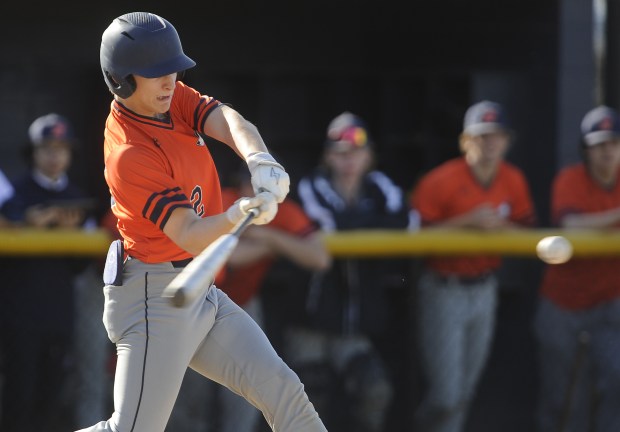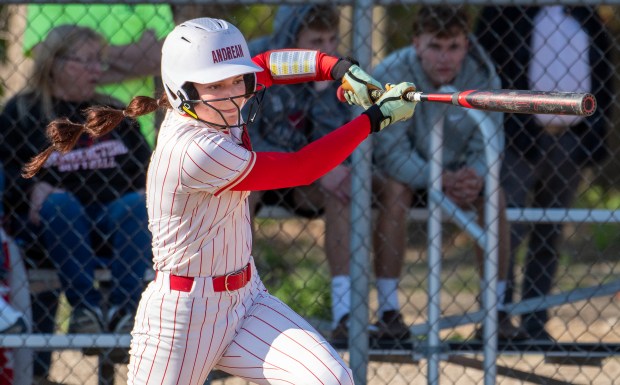Four Venezuelan girls sat cross-legged on the ground Monday night with gags on their lips that said “liberty, peace, dignity and justice” to protest the reelection of their country’s authoritarian leader Nicolás Maduro, following increased scrutiny of the country’s electoral practices. Demonstrators held pamphlets behind them in Daley Plaza with statistics about how many people had been arrested and killed since the election.
Thousands of miles away in Venezuela, protesters surged in the streets of their home country against what many described as one of the worst moments in the country in over a decade of decline — caused by corruption and government mismanagement.
Few trust that Maduro won the country’s presidential election last Sunday, and authorities have yet to produce voting tallies to prove it. Several countries, including the United States, have recognized opposition candidate Edmundo González as the winner.
An AP analysis of vote tally sheets released Friday by Venezuela’s main opposition shows González received 6.89 million votes, nearly half a million more than what the government says Maduro had to win. It shows Maduro received 3.13 million votes.
Maria Valentina Ramirez, 22, sat on the curb at the protest Monday and rocked her baby as she watched the sea of red, blue and yellow flags wave back and forth. She said she left Venezuela in 2021 when the pandemic pushed an already collapsed economy into even more ruin. She was studying psychology at the time, she said.
“I think that 80-90% of migrants came because of the situation there, not because we wanted to come,” Ramirez said.
The Venezuelan community in Chicago was disheartened in the days after the election. Many have family members in areas affected by protests and said they were worried their relatives might get imprisoned or even killed for having ties to the opposition. Human rights organizations in Venezuela have found the government’s solution to silence people’s discontent has been “through the disproportionate use of force” that has resulted in the deaths of protesters.
Monday’s group kicked off the demonstration in the Loop by stretching a large flag out and singing the country’s national anthem: Gloria al Bravo Pueblo, written in the 19th century to encourage the fight against Spain. “Down with the chains! ¡Abajo cadenas!” it repeats.
Both González, a former diplomat, and opposition leader Maria Corina Machado — who was barred by the government from running — say they fear they will be arrested or killed by the Maduro government after they wrote an appeal showing the commission of various crimes. They have both gone into hiding.
Under Maduro’s presidency, millions of Venezuelan citizens fled their once oil-rich country, which has been devastated by plummeting oil prices and U.S.-imposed sanctions. Hundreds of thousands of migrants from Venezuela have come to the U.S., including the majority of the 46,000 migrants who have passed through Chicago.
Maduro became president in 2013 when then-president Hugo Chávez died. Afterward, the economy began to spiral and Maduro sought ways to gain more power. He won an election in 2018 that was widely disputed.
At the time, the country was in economic disaster, which made the U.S. tighten sanctions and led to even more food scarcity, inflation and malnutrition for Venezuelans. The U.S. had recently begun lifting sanctions on the South American country in exchange for promises of a fair election, and will likely ramp them up again unless Maduro agrees to a peaceful transition of power.
Many experts doubt the legitimacy of Venezuela’s elections, citing past irregularities and a lack of democratic practices.
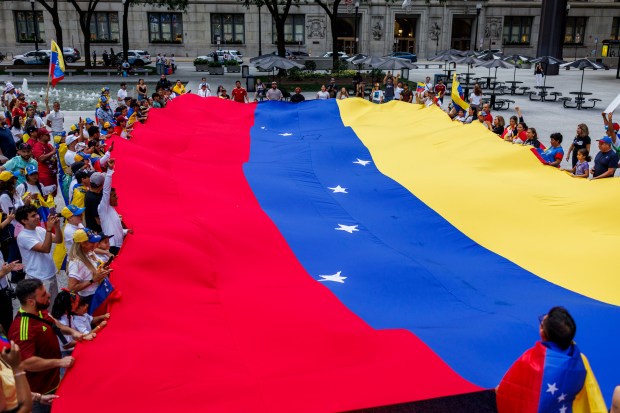
“Maduro has all the power of the state, all the media and a lot of resources,” said Sergio Jose Gutierrez, chief executive officer of Espora, a digital strategy agency that has managed over 140 gubernatorial and presidential campaigns in a recent interview with the Tribune.
While leftist allies denounced the election’s outcome, several countries — Russia, China, Iran and Cuba, among others — recognized and celebrated Maduro.
But Ana Gil-Garcia, founder of the Illinois Venezuelan Alliance, said the results in favor González are indisputable. She stood to the side of the crowd Monday night and watched the gathering with pride. She is originally from Venezuela and was planning to go back the week after the election to visit her 95-year-old mother but couldn’t because the airport in Panama had closed.
“Venezuela has lived through years of dictatorship, but none as bad as now,” she said.
Diego Loreto, a pastor in Chicago, led a prayer to the crowd gathered Monday night. He said the country is in crisis.
“I invite all of you to join me in kneeling for our people, for our families, for our community, for young people who are dying needlessly, for a noble nation that years ago opened its doors to many countries,” he said.
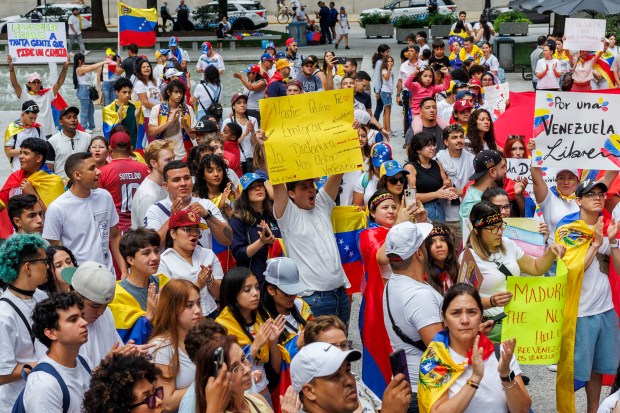
People hugged one another. They cheered and held up signs that said “For a free Venezuela,” and “Fraud.” They wrapped themselves in flags. One man climbed the Chicago Picasso statue with a string of balloons in Venezuela’s colors.
Ramirez said most of her immediate family is still in Maracay, in north-central Venezuela. It pains her to be so far away from them, she said.
Her daughter Olivia’s first birthday is in two weeks.
“I would do anything so that she could grow up in Venezuela,” Ramirez said. “Grow up with everything that I did — the beautiful mountains and beaches.”
The Associated Press contributed.


